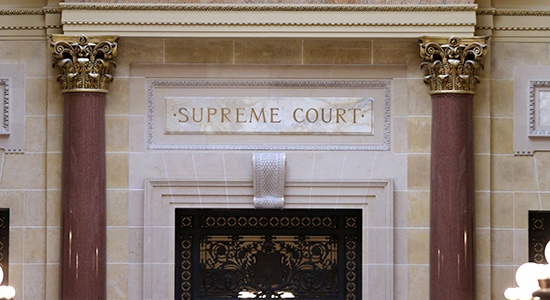
Jan. 22, 2018 – In Wisconsin, expungement decisions must be made at the time of sentencing. Recently, the Wisconsin Supreme Court ruled that a young defendant could not seek a sentencing modification to address expungement after the sentencing.
Diamond Arberry filed a postconviction motion for relief after pleading no contest to felony and misdemeanor retail theft. Arberry, 18 years old at the time of the crime, attempted to steal merchandise from a Victoria’s Secret store in Fond Du Lac County. Three other charges were dismissed, including obstructing and resisting an officer.
The judge accepted Arberry’s plea. She was sentenced to one year of confinement and two years of extended supervision on the felony count. On the misdemeanor count, the judge imposed two years of probation, with stayed sentences for jail time (one year) and extended supervision (two years). The judge did not address expungement eligibility.
Under Wis. Stat. section 973.015, those who commit crimes while under the age of 25 may be eligible for expungement of the criminal record upon successful completion of the sentence, if the crime committed carried a maximum prison term of six years or less.
However, the statute specifically says the court may order that the record be expunged “at the time of sentencing,” and the Wisconsin Supreme Court has held that the statute requires the sentencing court to make an expungement decision, or it is not available.
That is, a young defendant who successfully completes a sentence cannot come back to the court later and request expungement if that determination was not made at the time of sentencing. The judge must decide expungement at the time of sentencing.
Arberry sought postconviction relief, before completing her sentence, for an amended judgment of conviction. She wanted the court to determine that she was eligible for expungement. The circuit court denied the request. An appeals court affirmed.
In State v. Arberry, 2018 WI 7 (Jan. 19, 2018), the supreme court was unanimous in ruling that Arberry could not seek an amended judgment to address expungement.
Arberry argued that expungement could be raised, postconviction, as a “time of sentencing issue” if unknowingly overlooked and relevant to the sentence. In that case, expungement would be a “new factor” that warranted a reopening of the sentence.
The supreme court disagreed.
“The question before us is whether ‘at the time of sentencing’ means only at the time sentence is imposed or whether it also encompasses post-sentencing motions for sentence modification,” wrote Justice Annette Ziegler for the court. “We conclude that ‘at the time of sentencing’ means only at the time when the sentence is imposed.”
Expungement Bills Pending
Two different expungement bills are currently pending in the Wisconsin Legislature. Although SB 53 (passed the Senate in November) and AB 331 (still pending in the Assembly) are different in some respects, both would allow young defendants to seek expungement even if the court did not make an expungement decision “at the time of sentencing.” Thus, a defendant such as Arberry could still petition for expungement.
Related Articles
Drinking Ticket Downs Young Offender’s Chance at Expungement – WisBar News (July 12, 2017)
Expungement Bill Gives Young Offenders More Opportunity for Second Chances – InsideTrack (June 7, 2017)
Medical Professional Loses Challenge to Court’s Discretion on Expungement – WisBar News (Dec. 20, 2016)
Wisconsin Supreme Court Sides with Young Defendant in Expungement Case – WisBar News (Dec. 18, 2014)
Supreme Court: Expunction Decision Must Be Made at the Time of Sentencing – WisBar News (May 27, 2014)
